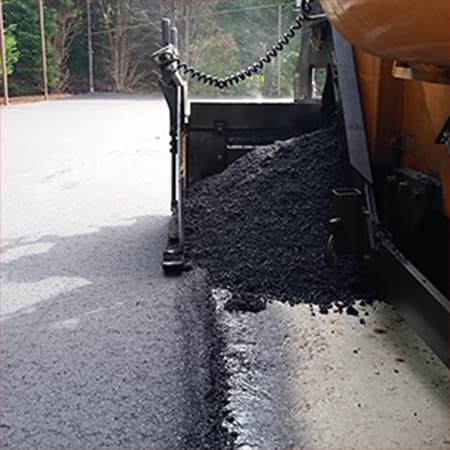Cracks in Asphalt
The next 5 questions (13-17) from the top 50 paving maintenance questions are on the subject of cracking:
13. My lot has cracking can you repair the cracks?
14. What is the difference between normal cracking and alligator cracking?
15. What are my options for fixing the alligator areas?
16. You said there is reflective cracking in my lot, what is reflective cracking?
17. What are the advantages of repairing the cracks.
Although these are the common questions that we get, they really do not cover all the questions associated with cracking. This is a really big topic and from the perspective of someone who has spent over 30 years in the asphalt industry its an interesting one. This article is not intended to be definitive. I am trying to be informative to the typical property manager who is trying to deal with degrading conditions in their asphalt.
After spending some time on google, going through various journals and researching this subject in all the publication I have at my disposal, its clear to me that there is alot of information that covers this topic but not alot that pulls the whole topic together. Actually I didn’t find any articles that did this. Even in the Asphalt Handbook you would have to pull alot of sections together to try to cover all the reasons for cracking. As a result there do not appear to be any ready reference guides to help property managers figure out what their problem is.
This article will attempt to give some insight into the issue. Lets start with the broad sweep and say cracking is a symptom of some sort of pavement failure. The question is why does pavement fail and does it always result in cracking? Not always but for the most part yes there is always some sort of cracking that occurs at some point with a pavement failure. Its worth repeating though that its not the problem. Its a symptom of the problem.
Pavement failures for three main reasons:
1. Surface Failures
2. Bonding Failures
3. Structural Failures
This provides a nice umbrella but it needs to be said that every crack or failure cannot be neatly classified into one of these categories. They often fall in between or in both.
Surface failures have to do with problems that occur in the surface layer of the asphalt. A common example of this is a crack that forms along a seam. Another example is cracking that water causes through erosion or deterioration of the asphalt. Oxidation or the effects from the sun would fall into this category.
Bonding failures are problems that occur between layers. Asphalt unraveling from layers not being tacked well together. Shoving or sliding that occurs at intersections where trucks always stop. Reflective cracking in my mind would fall into this group.
Structural failures are usually associated with the underlying stone base. Causes include weak or deficient base, excessive moisture, and lack of proof rolling procedures before placing the stone base.
Determing the cause of the crack usually will dictate the remedy. Normally crackfilling techniques can be used for surface failures and, on the other hand, would not be an acceptable remedy for structural failures. In the case of structural failures, it would be better to address the fundamental underlying problem by doing some sort of full depth repair.
Bonding failures could require either crackfilling or full depth repair but also might have other remedies that may be more appropriate. For example if asphalt is sliding or shoving the right remedy has to be determined by finding out what is the root cause. Asphalt might shove because the new surface was not properly tacked to the old, or its on a steep incline and the weight of the vehicles is pushing the asphalt, or there is something inherently wrong with the asphalt. Only someone with reasonable experience in these situations would be able to determine the cause. Generally an experienced geotech with roadtech experience would be able to determine the cause. There is no substitute for experience. A contractor who has dealt with these situations before would almost always have a good grasp of the problem and reasonably come up with a remedy that will work.
Be careful to consult a contractor that has the knowledge and technical skill to come up with the right remedies to problems. Our field estimators have alot of experience to draw from and if they don’t know the answer they will get someone out there that does.
Find Your Paving Solution





